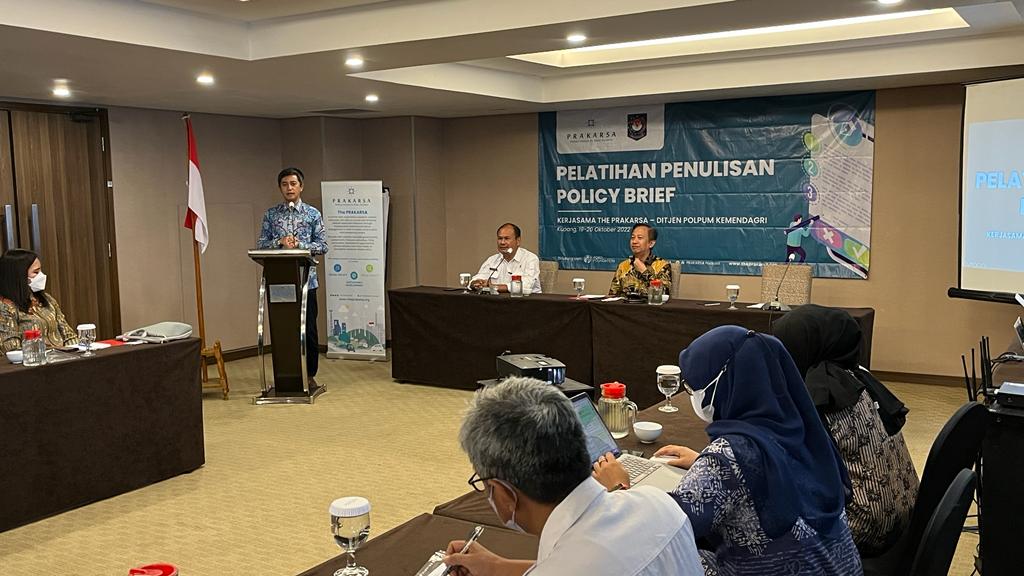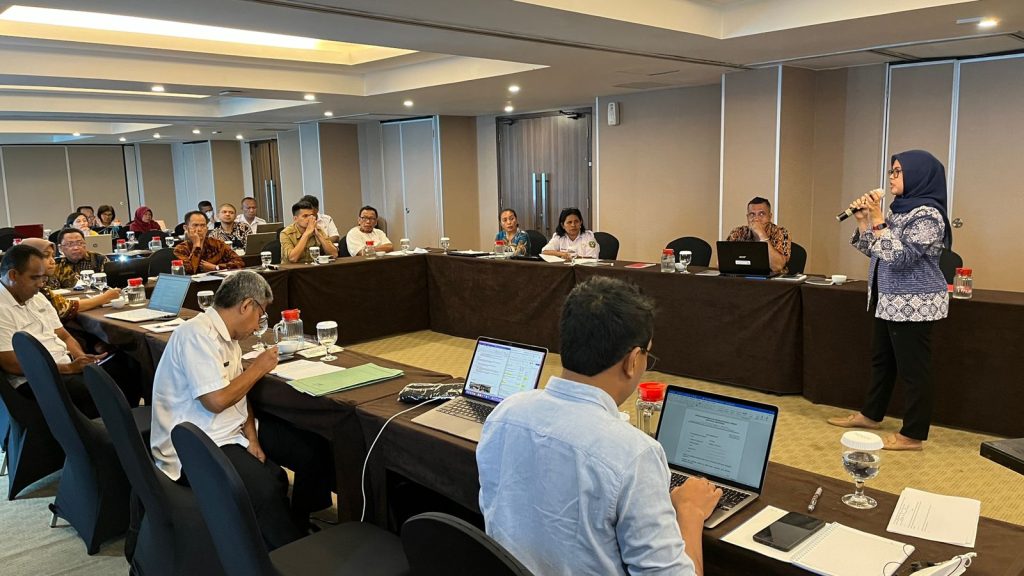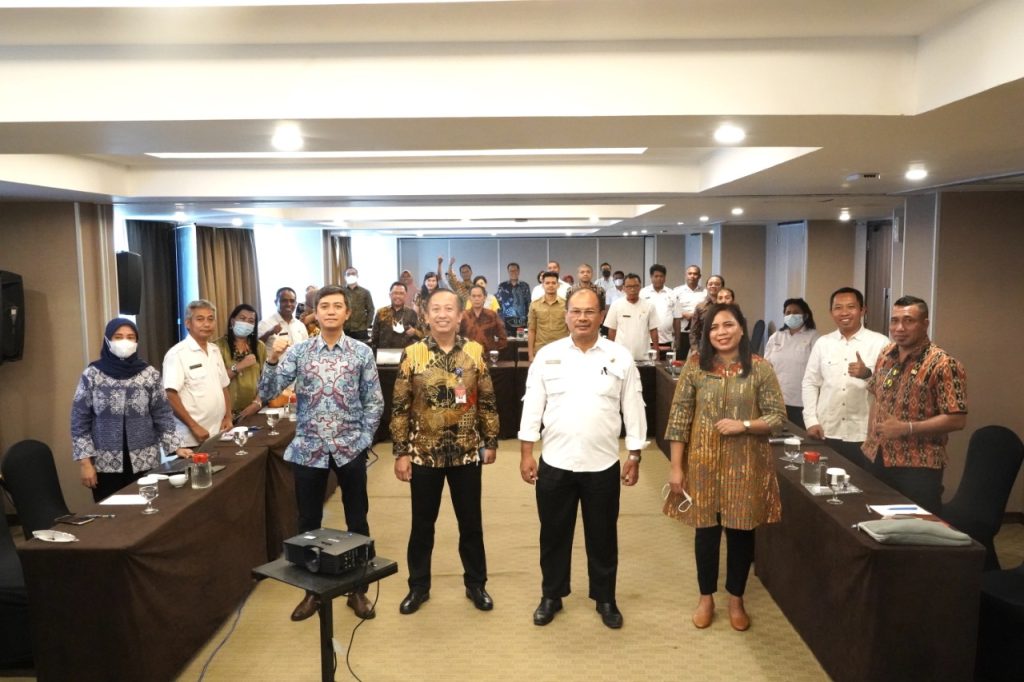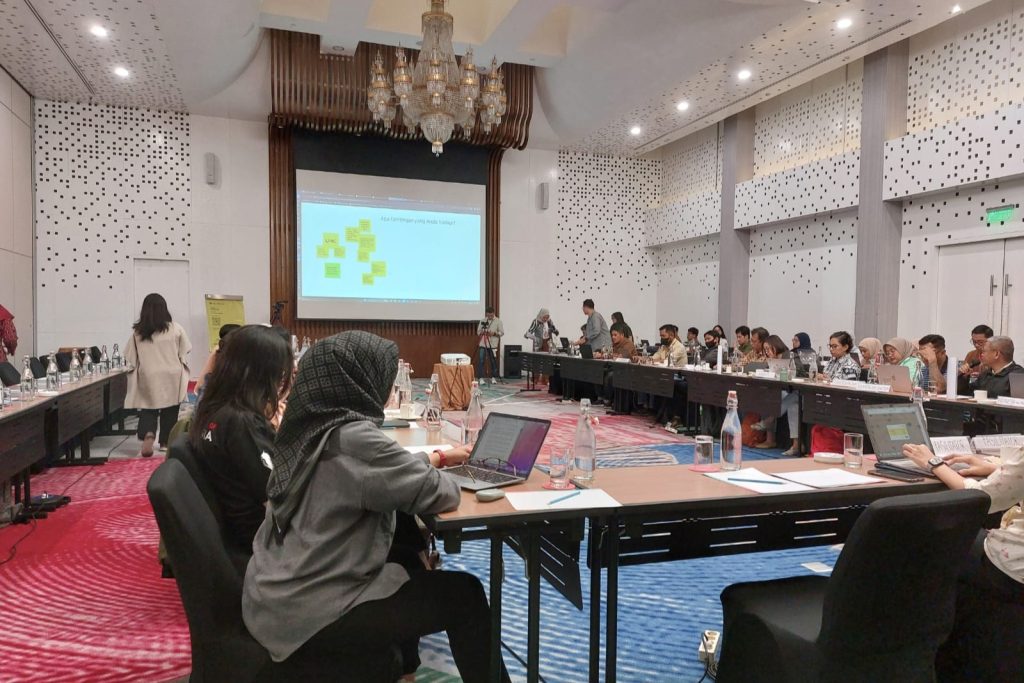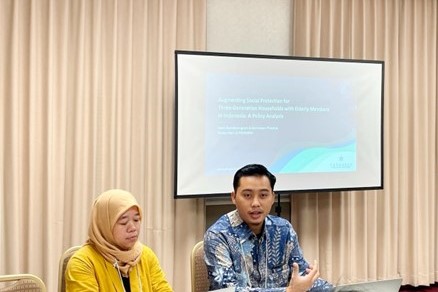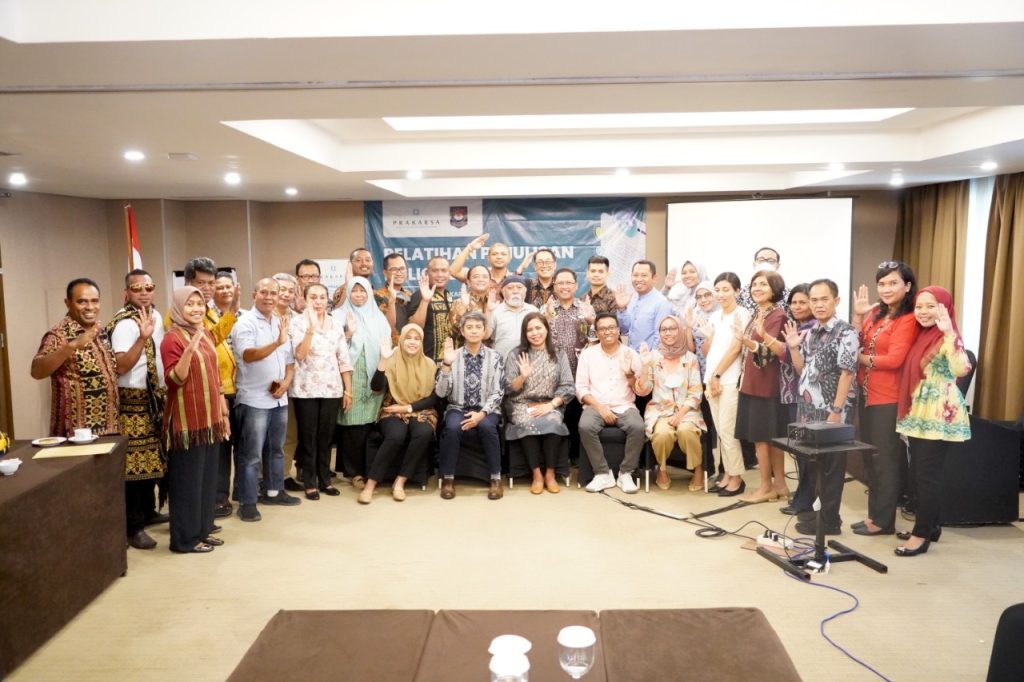
The PRAKARSA together with the Directorate General of Politics and General Administration of the Ministry of Home Affairs organized a Policy Analysis and Writing training Policy Briefs for local government policy analysts and stake holders. This activity was held in Kupang, East Nusa Tengga (NTT) for 2 days on Wednesday-Thursday (19-20/10/2022).
The participants who attended were representatives from various local government institutions ranging from Kesbangpol, Bapeda, and Regional Research and Development Bandan from 4 different provinces, namely East Java, South Sulawesi, NTT and West Nusa Tenggara (NTB).
The Head of Sub-Directorate for Supervision of Foreigners and Foreign Institutions at the Ministry of Home Affairs, Katarina Rambu Babang, said that the basis for implementing this activity is to respond to the upcoming 2024 simultaneous General Elections which require the readiness of local government officials to be able to respond and have the ability to formulate policies in order to respond to socio-political phenomena that caused by the election.
"This relates to how to be aware of election vulnerabilities that occur, and for the record these four regions also have election vulnerabilities," said Katarina.
Meanwhile, the Head of the NTT Kesbangpol Agency Yohanes Oktavianus welcomed the organization of this event. He admitted that especially in NTT, regional apparatus related to Kesbangpol really needed this kind of training.
“As at this time, we can only record reports, but cannot analyze and it is necessary for trainings like this. There are many things we don't know and we really need to be told," said Yohanes.
Furthermore, the Executive Director of The PRAKARSA Ah Maftuchan expressed his appreciation for the support that has always been given by the Directorate General of Public Relations of the Ministry of Home Affairs for the initiatives being developed PRAKARSA in various activities aimed at strengthening policy analysts in the regions in producing policy recommendations.
"So that it can be an option or reference in formulating policies in their respective regions," said Maftuchan.
On this occasion, Maftuchan also mentioned that the implementation of this activity is intended to be able to trigger or provide stimulation for regional policy analysts to start strengthening evidence policy making process.
"This means strengthening the policy-making process in their respective workplaces so that they are evidence-based, so that they are based on factual conditions, factual data that can be accounted for both politically and technically and scientifically," concluded Maftuchan.
